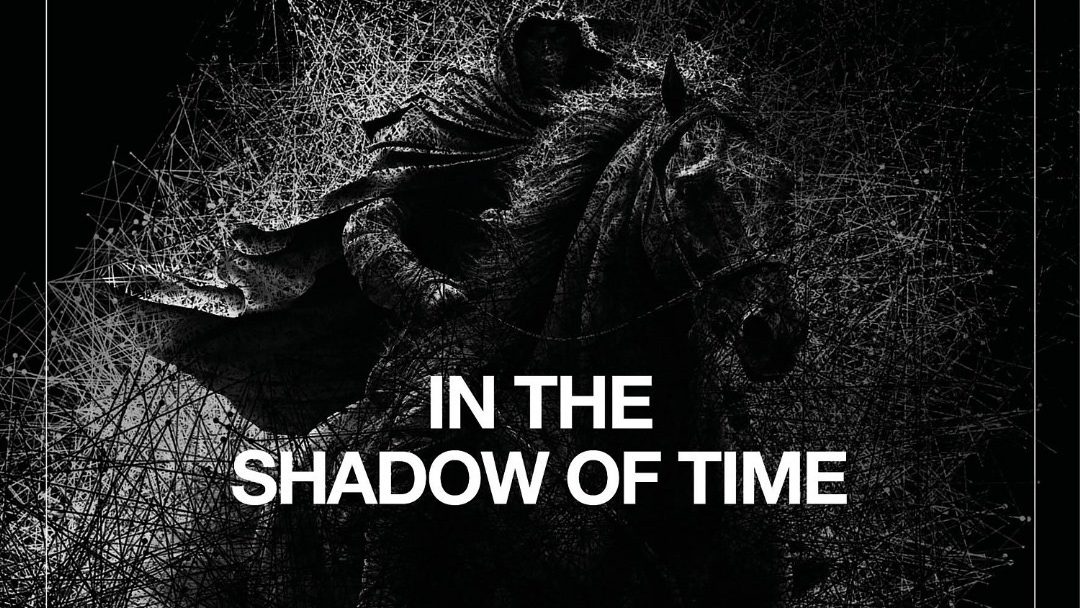Hailing from the vibrant cultural scene of London, England, Marine Store Dealer is a band deeply connected to the emotional nuances of modern life. Their music transcends simple entertainment; it surrounds listeners, sparks reflection, and provides a subtle form of healing. The trio, Gemma Upton on guitar and lead vocals, Martin Pearce on bass, keyboards, and backing vocals, and Eray Çaylı on drumscrafts emotionally rich soundscapes that blur the lines between personal vulnerability and collective experience. What sets this group apart is their ability to create music that feels both intimate and expansive, merging the layered textures of post-rock with the ethereal qualities of dream pop and the engaging storytelling of alternative indie.
Their songs often carry a thoughtful and cinematic feel, gently exploring intricate themes such as loneliness, social unrest, and resilience in a world that seems to be unraveling. Rather than offering escapism, Marine Store Dealer invites listeners to reflect, drawing them into sonic environments where silence conveys meaning, restraint resonates, and emotions are treasured for their depth rather than their intensity. While their music is firmly rooted in the present, it echoes the past in both sound and subject matter. Their work holds a timeless essence, as if each track exists suspended between history and the future. With every release, they reinforce their position not just as musicians but as storytellers, blending atmosphere, narrative, and feeling.
Scheduled for release on July 4, 2025, Dead Men’s Songs is the second single from Marine Store Dealer’s upcoming sophomore album. The track offers a quiet reflection amidst chaos. With intricate layers and a haunting atmosphere, it delves into themes of societal unrest, political decay, and the enduring shadows of history, all set against a broad and emotionally charged sonic landscape. This piece conveys the unspoken pain of our era, capturing the unsettling stillness born from both external upheavals and inner alienation. It serves as an auditory meditation, a soft anthem for those grappling with the subtle disorder of modern existence. Merging melancholy with optimism, and tension with tenderness, Dead Men’s Songs reinforces Marine Store Dealer’s status as a deeply emotive voice in the contemporary alternative music world.
From the very first notes, Marine Store Dealer offers more than just a song; they build an immersive experience for the listener. The atmosphere is immediate and captivating, with a quiet urgency flowing through its understated yet evocative opening. Gentle ambient sounds swirl beneath the surface, gradually unveiling subtle rhythms and haunting melodic lines. The track mesmerizes not through force but through suspense, mood, and subtlety. It balances closeness with openness, creating a space that feels like wandering through a shared memory, an elusive story wrapped in mystery and melancholy. From the first sound, I was drawn deep into its brooding layers and remained enveloped throughout.
Musically, Dead Men’s Songs delivers a refined blend of indie rock, post-rock influences, and contemporary alternative pop, crafted with great precision. The instrumentation is both exacting and emotionally stirring, featuring shimmering guitar riffs, nostalgic keyboard melodies, and a bass line that not only underpins but energizes the piece. This impressive synergy comes alive through the talented trio: Gemma Upton on guitar and lead vocals, Martin Pearce on bass, keyboards, and backing vocals, and Eray Çaylı on drums. Each member skillfully fills their sonic role while contributing to the overall dynamic flow. Pearce’s keyboard playing gleams like flickering candlelight, while his bass adds warmth and depth. Çaylı’s drumming is understated, providing a steady heartbeat rather than dominating the sound. The song’s transitions are smooth and fluid, reminiscent of the ebb and flow of tides, executed with elegance and without abrupt changes.
The standout element of the track is Upton’s vocal performance. She delivers each line with a compelling mix of raw feeling and purposeful expression, infusing the lyrics with deep emotional complexity. Her voice strikes a balance between vulnerability and resilience, illuminating themes of social unrest, isolation, and quiet rebellion. Her subtle tonal approach steers clear of excessive drama, lending a genuine and heartfelt quality. Complementing her are Martin Pearce’s backing vocals, which do more than simply harmonize; they add a mysterious, reverberant layer that surrounds Upton’s voice like smoke drifting around a flame. This layering adds richness and depth, amplifying the song’s emotional resonance and giving the choruses an almost ethereal vibe. Together, the vocals create an intimate yet collective conversation, flowing through the lyrics with a haunting elegance.
One of the most charming surprises in the arrangement is the delicate inclusion of handclaps, which contribute an organic and unexpected texture to the soundscape. These claps feel ritualistic rather than accidental, grounding the airy layers with a tangible sense of humanity. They introduce rhythm without urgency, pushing the song forward while preserving its atmospheric flow. This thoughtful addition lifts the track beyond typical genre limits. The percussion, including the strategic use of silence, plays a crucial role in shaping the song’s dynamic tension, allowing the music room to breathe and heightening the drama of every phrase. Each sound in the mix feels purposeful and poetic.
The production quality of Dead Men’s Songs is impeccable—not cold or sterile, but designed to showcase each sonic element, from ambient layers to vocal subtleties. The mix demonstrates a strong sense of spatial harmony: guitars shine in the midrange without overpowering the vocals, the bass offers a subtle yet firm foundation, and the drums hit with crisp, natural clarity. It’s clear that great care was taken to preserve the emotional core of the tracks throughout post-production. Rather than dulling the energy, the mix enhances it, delivering a live, organic feel that made me imagine being in a dimly lit room with the band, immersed in their sound. The atmosphere they create through both performance and production is rich, expansive, and deeply affecting, highlighting their artistic depth and vision.
In conclusion, Dead Men’s Songs is more than just a new single; it is a cinematic sonic journey, a haunting tribute, and a powerful artistic statement condensed into four and a half minutes of brilliance. Marine Store Dealer has found a voice that blends underground grit with refined polish, offering something deeply resonant for discerning audiences. The song doesn’t demand attention; it earns it gradually and intimately through expert craftsmanship, heartfelt sincerity, and creative expression. It reminds us of music’s transformative power when it speaks softly instead of shouting. After the last note faded, I sat in silence, reflecting not only on the song but on everything it stirred within me. That, to me, is the mark of truly exceptional art.



